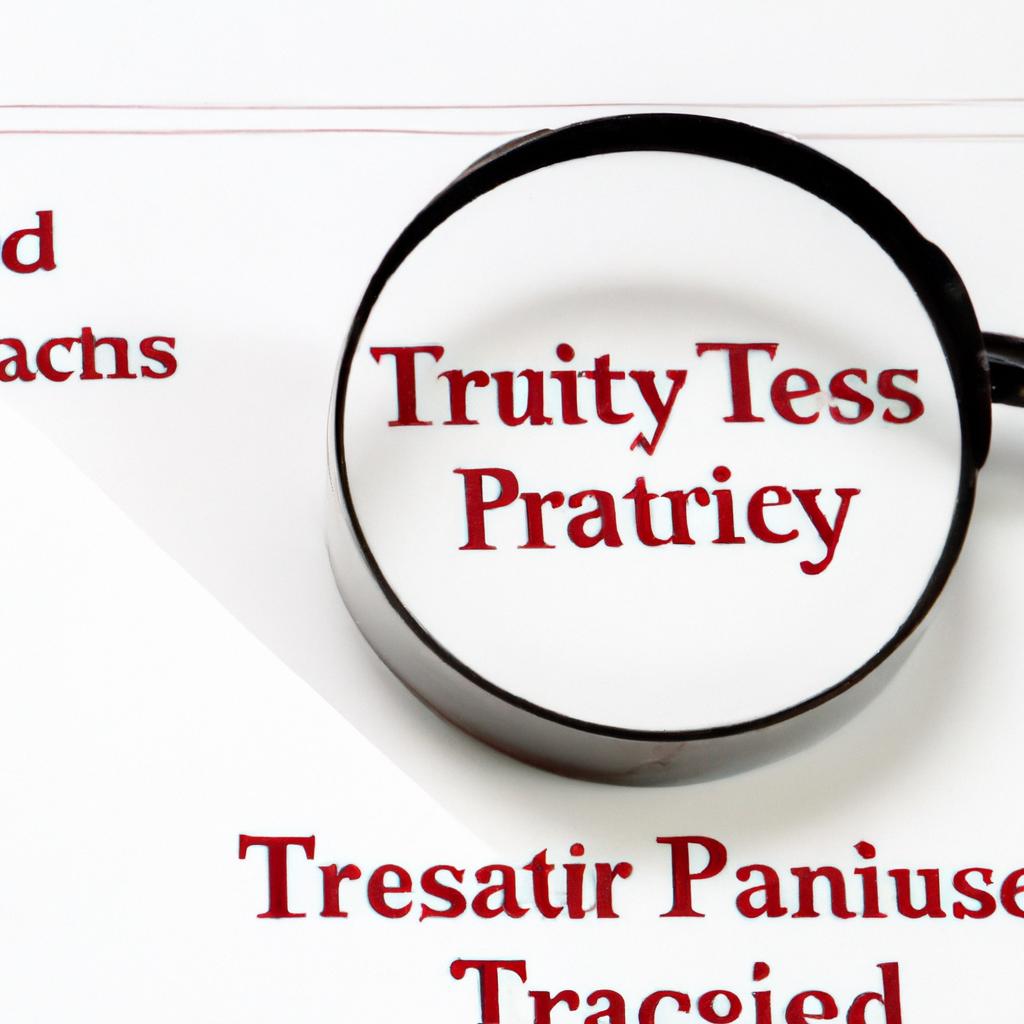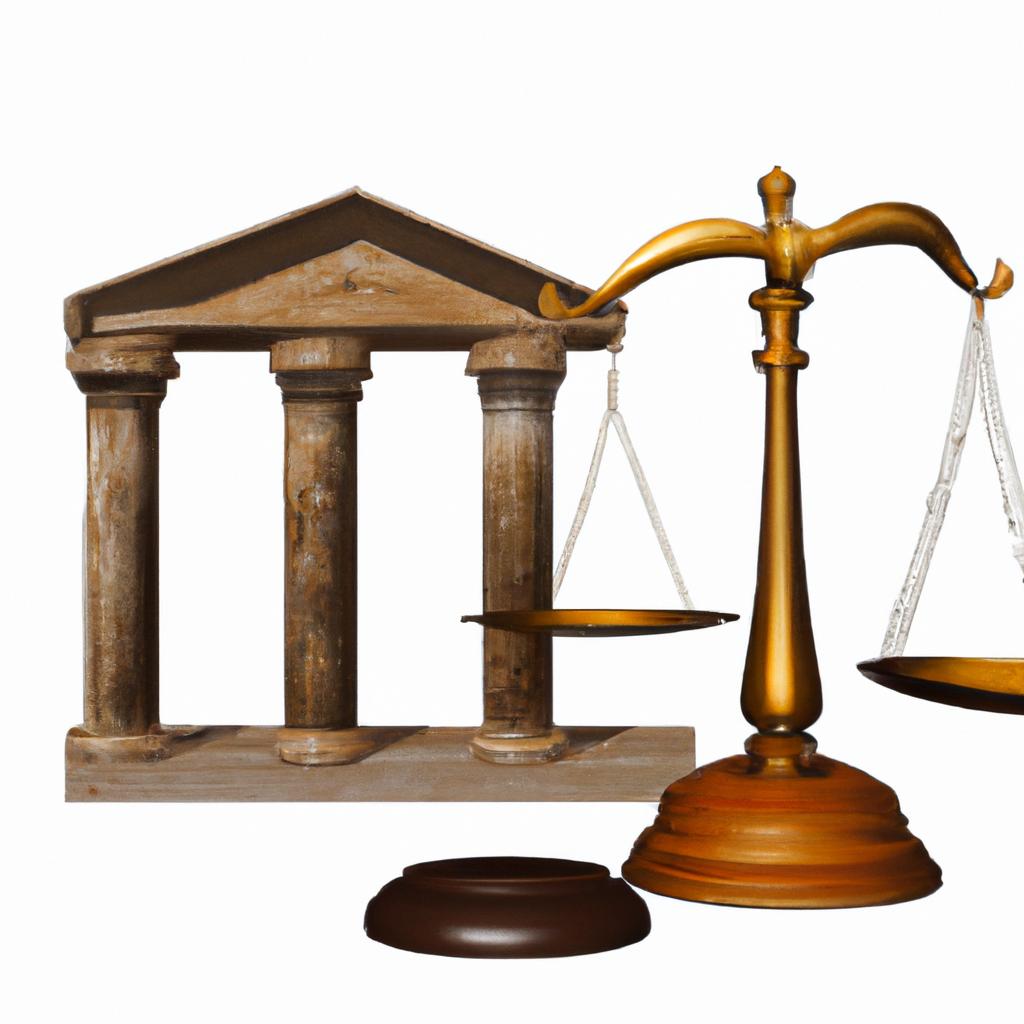In the intricate world of estate planning and asset protection, the concept of trust has long been a pillar of safeguarding one’s wealth and ensuring its proper distribution. However, as individuals seek to shield their assets from prying eyes and potential adversaries, the question arises: Is a trust a matter of public record? In this article, we dive into the complexities of trust law to determine the level of privacy and disclosure inherent in this powerful legal instrument. As experienced legal practitioners at Morgan Legal Group in New York City, we unravel the nuances of trust administration, shedding light on the confidentiality and transparency surrounding this essential tool in wealth management.
Understanding the Privacy of Trusts in Public Records
Privacy of Trusts in Public Records
Trusts are an essential estate planning tool that many individuals utilize to protect and distribute their assets. One common question that arises is whether trusts are public records. The answer to this question is not as straightforward as one might think. While some information about trusts can be found in public records, trusts themselves are generally not considered public documents.
It is important to understand that trusts offer a level of privacy that other estate planning tools, such as Wills, do not. When a Will goes through the probate process, it becomes a public record that can be accessed by anyone. In contrast, trusts typically do not go through probate, allowing them to remain confidential. While certain details about a trust may be included in public documents, such as property transfers or filings with the court, the trust agreement itself is not usually made available to the public.

Implications of Trusts Being Publicly Accessible Information
When considering the , it is crucial to understand the potential risks and benefits that come with this level of transparency. One of the main concerns is the loss of privacy for individuals who have established trusts, as their personal and financial information becomes readily available to the public. This exposure can leave them vulnerable to scams, identity theft, and unwanted solicitations.
On the other hand, having trusts as public records can promote accountability and transparency within the legal system. It allows interested parties, such as beneficiaries and creditors, to easily access information about the trust and ensure that it is being managed properly. This level of openness can help prevent fraud and mismanagement of assets, ultimately providing a layer of protection for those involved in the trust.

Strategies for Maintaining Confidentiality in Trust Matters
In order to maintain confidentiality in trust matters, it is important to implement various strategies to protect sensitive information. One way to ensure confidentiality is by carefully selecting trustees and beneficiaries who can be trusted to keep information private. It is also crucial to have detailed trust agreements that outline the specifics of the trust and limit disclosure of information to only those who need to know.
Additionally, utilizing a corporate trustee can help maintain confidentiality as they are professionals bound by strict confidentiality agreements. Keeping trust documents secure and limiting access to only authorized individuals is another effective strategy. Regularly reviewing and updating trust documents as needed can also help protect confidentiality in trust matters.

Importance of Consulting with Legal Professionals for Trust Administration
As legal professionals specializing in estate planning and trust administration, it is essential to emphasize the importance of consulting with a qualified attorney when navigating the complexities of trust administration. A trust is a legal document that outlines how assets should be distributed upon an individual’s death, and ensuring that this process is carried out smoothly and in accordance with the law is crucial. Legal professionals possess the expertise and knowledge to guide trustees and beneficiaries through the trust administration process, offering valuable insights and guidance every step of the way.
One common question that arises in trust administration is whether a trust is a public record. It is important to note that trusts are typically private documents, unlike wills which are often made public upon the individual’s passing. Trusts provide a level of privacy and confidentiality, allowing beneficiaries to avoid the probate process and maintain discretion regarding their assets. Consulting with legal professionals can help trustees and beneficiaries understand the intricacies of trust administration, including the privacy implications of maintaining a trust as a private document. Trust administration can be a complex process, and seeking guidance from experienced legal professionals is essential to ensure that the trust is administered correctly and in accordance with the trustor’s wishes.
Q&A
Q: Is a trust public record?
A: No, trusts are generally not public record. Trusts are private legal agreements between a grantor, trustee, and beneficiaries and are not typically filed or registered with any government agency.
Q: Can anyone access information about a trust?
A: Generally, only those who are directly involved with the trust as grantors, trustees, or beneficiaries have access to information about the trust. In some cases, a court order may be required to access trust information.
Q: Is there any way to find out information about a trust without being directly involved?
A: It is unlikely that an individual not directly involved with the trust would be able to obtain information about it. Trusts are designed to provide privacy and protection for the assets they hold.
Q: Are there any exceptions to trusts not being public record?
A: In some cases, certain types of trusts may be required to be disclosed, such as charitable trusts or trusts created as part of a court proceeding. Additionally, if a trust becomes involved in a legal dispute, information about the trust may become part of the public record.
Final Thoughts
In conclusion, while the question of whether a trust is a public record may vary depending on the jurisdiction and specific circumstances, it is important to carefully consider the implications of having trust information accessible to the public. Whether the trust is for personal, family, or business purposes, understanding the potential transparency and confidentiality issues surrounding trusts is crucial in making informed decisions. Ultimately, seeking legal advice and guidance from professionals in the field can provide valuable insights and ensure that your trust is structured in a way that aligns with your goals and values. Trusts can be powerful tools for asset protection and estate planning, but navigating the complexities of privacy and disclosure is an essential part of managing a trust effectively.


